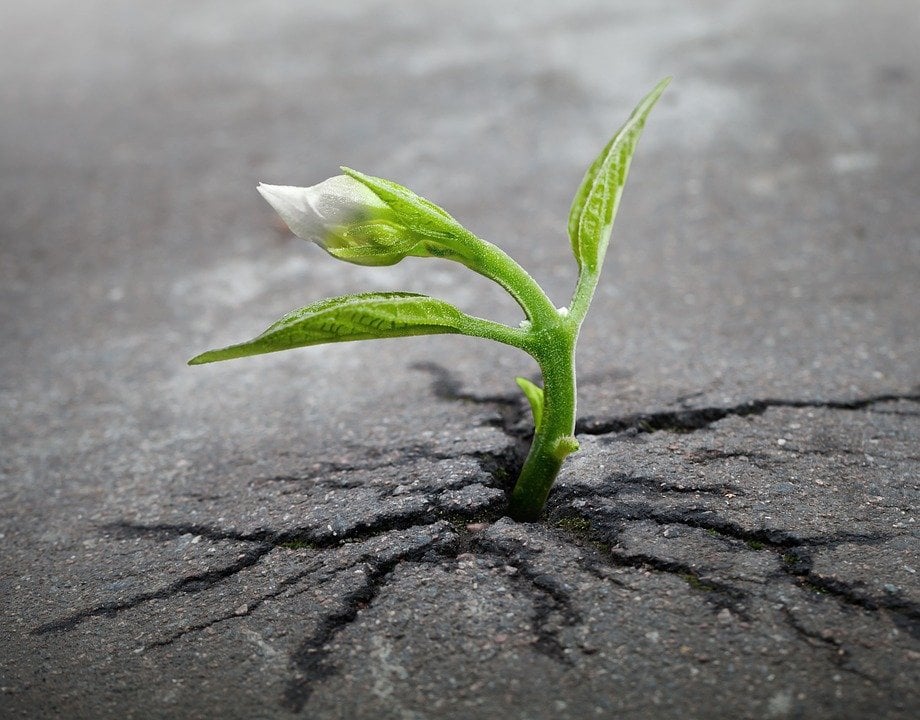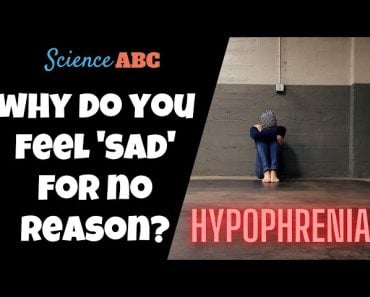Table of Contents (click to expand)
Yes, struggle can make you stronger. Post-traumatic growth (PTG) is a form of positive change that people experience as a result of struggling with major life crises or a traumatic event. PTG happens when someone who struggles to bounce back experiences a traumatic event, which makes him question his core beliefs, undergo psychological struggles, challenge his capabilities, and finally achieve a sense of personal growth.
Life is full of struggles—some easy, some tough. We may struggle to wake up in the morning or study for an upcoming test. We struggle with failures and illness, and struggle to cope with the loss of a loved one. One of the songs on my playlist has lyrics that say, ‘What doesn’t kill you makes you stronger’, but I just roll my eyes. How can struggle make you stronger? Well, studies show that it actually does! Psychologists call this ‘post-traumatic growth’.
Recommended Video for you:
What Is Post-traumatic Growth?
Adversities happen to us all, although some of us experience them more frequently or more intensely than others, but no one totally escapes them. When a crisis does happen, we can either sink under its weight or rise up and flourish. We can grow through the hard times and come out of the crisis better than before. Post-traumatic growth (PTG) is this form of positive change that people experience as a result of struggling with major life crises or a traumatic event.

Some people are resilient, meaning that they bounce back after a difficult situation. However, while post-traumatic growth often leads to resilience in a person, it’s not quite the same as resilience. PTG happens when someone who struggles to bounce back experiences a traumatic event, which makes him question his core beliefs, undergo psychological struggles, challenge his capabilities, and finally achieve a sense of personal growth. PTG won’t happen to someone who is already resilient in the face of trauma, since a resilient person won’t be as rocked to the core by such an event.
What Are The Indicators Of Post-traumatic Growth?
When a person grows after overcoming a struggle, he or she undergoes many changes on a fundamental level. To evaluate whether, and to what extent, a person has grown after a trauma, psychologists look for the following indicators:
1. Personal strength – Adversities often increase hardiness and resilience, shaping how people handle subsequent challenges. People often pull strength and courage from misfortune after having been caught up in tragedy – ‘If I have survived that, I can deal with anything.’
2. Greater appreciation for life – Experiencing hardships not only equips us to deal with negative situations in the future, but also helps us cherish the positive things in life. Surviving a life-threatening event or an illness helps a person appreciate the simple gift of being alive at all! One study has shown that, although people currently going through a trauma show less of a proclivity for savoring positive events, those who had dealt with trauma in the past showed more of an ability to appreciate life’s small pleasures.

3. New possibilities – People who have overcome major struggles develop a sense that new possibilities have emerged from the struggle, opening up opportunities that weren’t present before.
4. Relationship with others – While some people experience closer relations with specific people after a trauma, others feel an increased sense of connection to those who suffer, even strangers.
5. Spiritual change – A significant change in the beliefs of a person can cause a deepening of a person’s spiritual life. Experiencing trauma gives some people a new purpose in life, sometimes that goes beyond oneself and extends to society as a whole.
What Determines The Level Of Growth?
Not everyone who experiences PTG shows the same level of growth. This is because every person is different and goes through different types of trauma and lives under different circumstances. Given that, what decides how much a person grows by overcoming trauma?

According to one study, two traits make some people more likely to experience PTG: extroversion and openness to experience. This is because extroverts are more likely to seek out connections with others, and people who are open are more likely to reconsider their belief systems. The study also found that women tend to report more growth than men, although the difference is very small. Another research study that examined two hundred survivors of Hurricane Katrina found that genes also play a role in deciding the level of PTG that one experiences.
It is established that, while PTG is fairly common, it’s not universal. It is important that psychotherapists and their clients both recognize signs of unresolved trauma–withdrawal and isolation, feeling overwhelmed towards life’s ordinary ups and downs, not being able to move on with life–and take appropriate steps to bring a resolution to that problem.
In conclusion, we would like to clarify that post-traumatic growth certainly doesn’t make traumatic events good. However, for many of us, adversities are inevitable and we’re not given a choice between suffering and growth, on the one hand, and no suffering or growth, on the other.
So, whenever you feel down in life, press pause and remember how you overcame past difficulties that might have seemed impossible to you at the time. Remember how strong you are. Remember that this too shall pass, and when it does, you’ll find yourself stronger than ever!
References (click to expand)
- How a Challenging Past Can Lead to a Happier Present. The University of California, Berkeley
- Posttraumatic Growth Research Group | What is PTG? - ptgi.charlotte.edu
- (1996) The Posttraumatic Growth Inventory: measuring the positive .... The United States National Library of Medicine
- Hulbert, J. C., & Anderson, M. C. (2018, December). What doesn’t kill you makes you stronger: Psychological trauma and its relationship to enhanced memory control. Journal of Experimental Psychology: General. American Psychological Association (APA).












